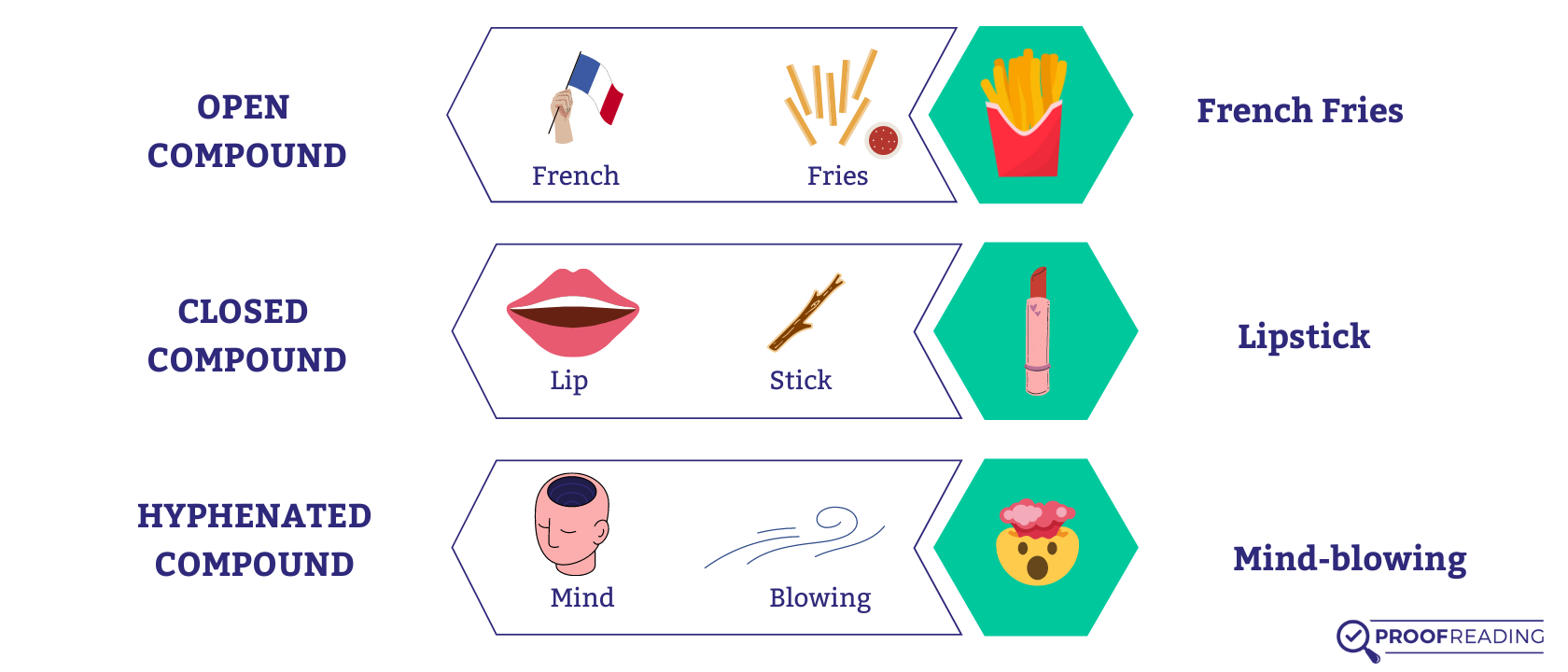In the rich tapestry of the English language, compound words play a crucial role in expanding vocabulary and enhancing communication. A compound word is formed when two or more words are combined to create a new word with a unique meaning. These words are not merely stuck together; they blend their meanings to create something new and often more precise. Understanding compound words can greatly improve both your writing and speaking skills. This blog post delves into what compound words are, the different types, and how they are used in the English language.
What Are Compound Words?
A compound word is a word that is made up of two or more individual words that function together as a single unit with a distinct meaning. The words that form a compound word can be from any part of speech, such as nouns, verbs, adjectives, and prepositions. When combined, these words take on a new meaning that is different from the meanings of the individual words.
There are several types of compound words, including closed compounds, which are formed by joining two words without spaces (e.g., toothpaste, basketball); hyphenated compounds, which use hyphens to connect words (e.g., mother-in-law, well-being); and open compounds, which consist of two separate words that function together (e.g., high school, post office). Each type serves unique purposes in language, which we’ll cover shortly.
Compound Word Examples
- Toothbrush: A compound of “tooth” and “brush,” referring to a tool used for cleaning teeth.
- Sunflower: A compound of “sun” and “flower,” which together name a specific type of flower that resembles the sun.
- Notebook: A compound of “note” and “book,” referring to a bound collection of pages for writing notes.
- Football: A compound of “foot” and “ball,” describing a sport played with a ball that is kicked with the feet.
- Raincoat: A compound of “rain” and “coat,” which denotes a waterproof garment worn to protect against rain.

Types of Compound Words
Compound words are generally classified into three types based on how the component words are joined: closed compounds, open compounds, and hyphenated compounds. Each type serves different purposes in conveying meaning and structure within sentences, enhancing clarity and understanding in language.
1. Closed Compound Words
Closed compound words are formed when two words are joined together without any spaces or hyphens. These are perhaps the most common type of compound word in English.
Closed Compound Word Examples
- Notebook: A book for taking notes.
- Basketball: A sport played with a ball and two baskets.
- Bedroom: A room used for sleeping.
- Hairbrush: A tool used for grooming hair.
- Teacup: A small cup used for drinking tea.
In these examples, the combined words create a new word that is often more specific than the individual words on their own.
2. Open Compound Words
Open compound words, on the other hand, are written as separate words but are understood together to convey a single concept. These compounds are less visually obvious because they maintain a space between the individual words.
Open Compound Word Examples
- Post office: A place where postal services are provided.
- Full moon: The phase of the moon when it is fully illuminated.
- High school: A secondary school typically for students aged 14-18.
- Coffee table: A low table typically placed in front of a sofa or seating area.
- Living room: A room in a home used for relaxing or socialising.
Open compounds are often found in newer or less formal contexts, and over time, some of these may evolve into closed compounds.
3. Hyphenated Compound Words
Hyphenated compound words are connected by a hyphen, which helps to clarify the relationship between the component words and avoid ambiguity. Hyphenated compounds are often used when the words combined could be confusing or unclear if written as separate words or as a single word.
Hyphenated Compound Word Examples
- Mother-in-law: The mother of one’s spouse.
- Well-being: The state of being comfortable, healthy, or happy.
- Editor-in-chief: The principal editor of a publication.
- Self-esteem: Confidence in one’s own worth or abilities.
- Long-term: Lasting for an extended period of time.
The hyphen in these examples helps to ensure that the meaning is clear and that the words are understood as a single unit.

Also read: Different Types of Tone in Writing
How to Use Compound Words
Using compound words correctly requires understanding the context in which they are used and recognising when a hyphen, space, or closed form is appropriate. The rules for compound words can sometimes be flexible, and the correct usage may vary depending on the style guide or the evolution of the language.
1. Consistency in Usage
When writing, it is important to be consistent in your use of compound words. For example, if you choose to hyphenate a compound word in one part of your text, you should continue to do so throughout the document unless there is a clear reason to change.
2. Context Matters
The context in which a compound word is used can also determine its form. For instance, the word “makeup” as a noun (referring to cosmetics) is a closed compound, but as a verb phrase “make up” (to reconcile) is written as two separate words.
Example:
Noun: “She applied her makeup before the meeting.”
Verb: “They decided to make up after the argument.”
3. Evolving Language
The English language is constantly evolving, and so is the use of compound words. Words that were once hyphenated may become closed compounds over time, or vice versa. For example, “email” was once commonly written as “e-mail,” but the hyphen has largely disappeared in modern usage.
Top tip: The spelling of compound words can vary, so it’s important to check a reliable dictionary if you’re unsure.
Compound Word Errors
Why Compound Words Matter
Understanding and correctly using compound words is important for clear and effective communication. They allow for more precise expression and can make your writing more engaging and dynamic. The structure of common long words can also help you better understand how compound words function, as many long words in English are formed by combining smaller units. However, because the rules surrounding compound words can be complex and sometimes inconsistent, it is crucial to pay attention to context and usage.
Also read: What is an Adjective: Types, Uses and Examples
FAQs About Compound Words
How to effectively learn compound words?
To effectively learn compound words, practice identifying them in daily reading, breaking them down into individual words, and understanding their combined meanings. Flashcards, word games, and using compound words in sentences also help reinforce understanding and memory.
What are the common mistakes kids make when they learn compound words?
Children often make errors like splitting closed compounds (e.g., “notebook” as “note book”) or combining open compounds (e.g., “icecream” instead of “ice cream”). They may also forget hyphens in hyphenated compounds, such as writing “mother in law” instead of “mother-in-law.”
What are the rules for spelling compound words?
The spelling of compound words depends on their type. Closed compounds are written as one word (e.g., “toothpaste”), open compounds are written as separate words (e.g., “post office”), and hyphenated compounds use hyphens (e.g., “well-being”). These rules vary slightly by context.
Are compound words the same in British and American English?
While most compound words are the same in British and American English, some differences exist. For instance, “post office” is common in both, but Americans might prefer “mailman” while the British use “postman.” Usage and preference may vary depending on the context.
How do compound words affect pronunciation?
Compound words can affect pronunciation by placing emphasis on different syllables. For example, in “greenhouse,” the stress is typically placed on the first part (“green”). Additionally, some compound words may combine sounds, slightly altering the way the individual words are spoken when joined.
Conclusion
Compound words are a fascinating and essential aspect of the English language, offering a way to express complex ideas succinctly and effectively. Whether you need help with grammar, punctuation, or the correct use of compound words, our expert proofreading services are here to assist you. Let us help you perfect your writing—get an instant quote in a few seconds!




